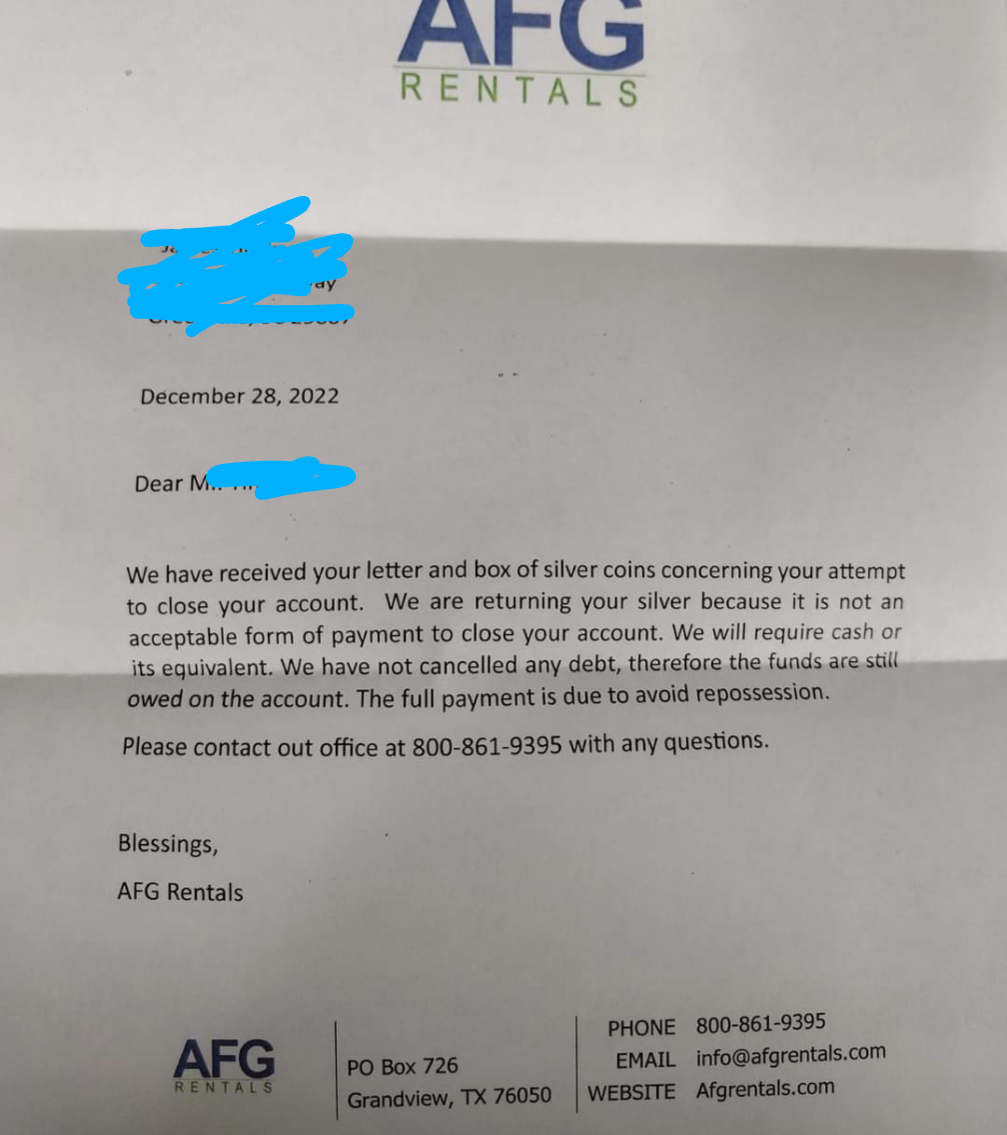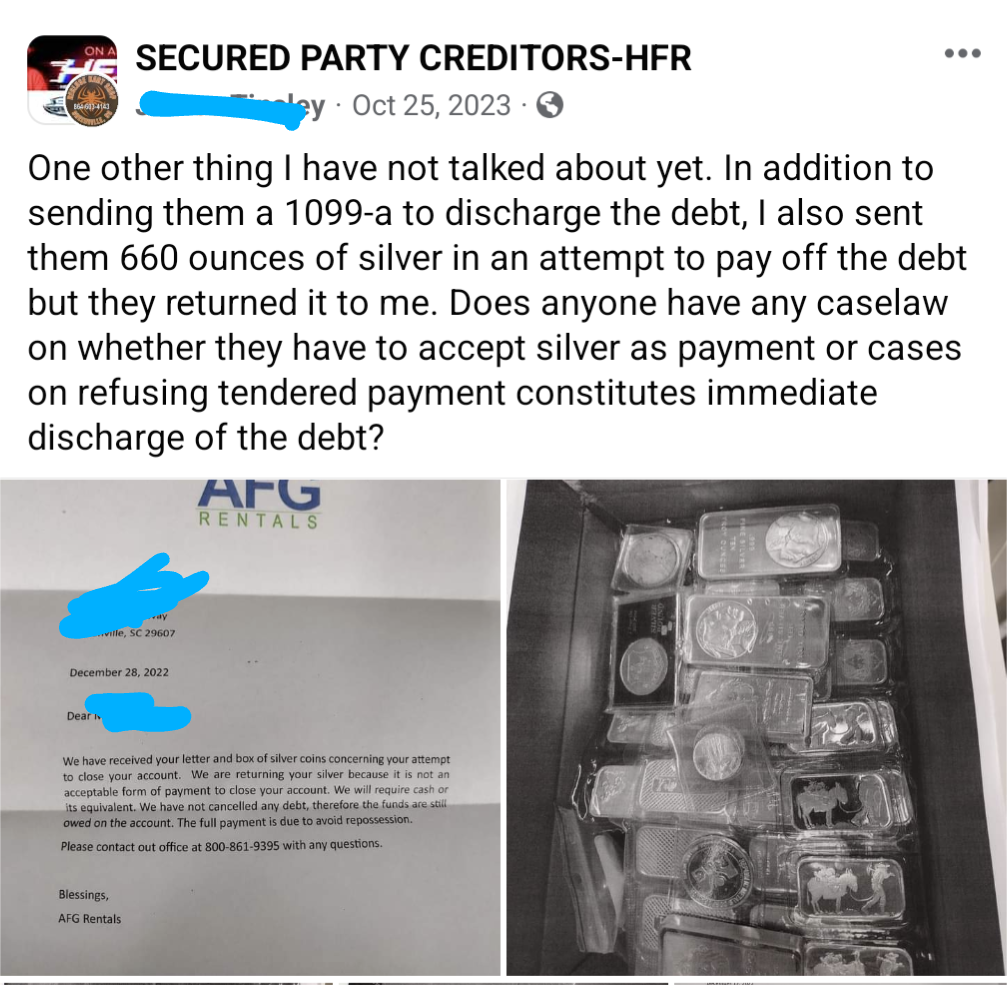201
you are viewing a single comment's thread
view the rest of the comments
view the rest of the comments
this post was submitted on 02 Mar 2024
201 points (100.0% liked)
InsanePeopleFacebook
5035 readers
1 users here now
Screenshots of people being insane on Facebook. Please censor names/pics of end users in screenshots. Please follow the rules of lemmy.world
founded 2 years ago
MODERATORS


Individuals are required to accept legal tender. If they refuse payment by legal tender then they get nothing. The debt is absolved by the act of offering (tendering) payment through legal tender. This is why Federal Reserve Notes have "This note is legal tender for all debts, public and private".
Edit: They are required to accept it for debts. They are not required to accept it as payment for goods and services when a debt has not been incurred. For example, a coffee shop isn't required to accept cash and can choose to only accept credit card payments.
We refused cash as a mortgage company.
That is legally impermissible. It's just that nobody bothered to take your employer to court over it. But if someone sends cash, your employer is legally obligated to accept it. If your employer sues someone for non-payment or tries to foreclose and the debtor offers payment in physical cash, it cannot be refused.
We got away with it ≠ it was legal
Section 31 U.S.C. 5103 states that US currency is legal tender for "all debts, public charges, taxes, and dues." This means businesses must accept cash for these specific purposes, but not necessarily for all transactions, including mortgage payments.
Are you arguing that a mortgage is not a debt??
No. I am saying in the US businesses have "freedom of contract" and can decide to accept cash or not. Check case law.
You cannot contract out this provision.
Suppose I'm a customer of your employer, and my contract says that the payments due are $1,000 per month by cheque or bank transfer only. I try sending $1,000 cash. Your employer rejects this payment and asks me to pay by cheque or bank transfer, per the terms of the contract. If I refuse, I'm in breach of contract and that gives your employer the right to foreclose on the lien against my house (subject to relevant local law and contract terms).
However, by breaching the contract, that also means I owe your employer a debt equal to the amount of the payment (or more, up to the entire amount, again depending on the exact terms and applicable law). If no money is owed, then your employer does not have the ability to foreclose. They can take me to court in a foreclosure action, but if I then plop down a stack of $100 notes of the correct size, then that absolves the debt. In reality, if this happened, it's probably more likely that the judge would direct me to pay the court clerk and have the clerk write a cheque or tell me to buy a cashier's cheque.
If they specifically want payment by bank transfer or cheque when they sue me, they're not suing for damages; they're suing for specific performance. That's not easy and it's usually quite hard to justify to the court why you want specific performance instead of just damages, especially since this would be a pretty facetious case to begin with. At the same time, I do think there is a good chance the judge will say "So the defendant offered the full amount that you want in cash and you turned them down? GTFO of here, case dismissed."
The act of offering legal tender as payment for a debt absolves the debt. If I offer your employer payment in cash, they cannot point to the contract as an excuse to refuse.
If you can cite case law to the contrary, I'm happy to admit you're right and revise my comments.
So no, businesses in the US do not have the "right to contract" out the legal tender nature of cash. It's just a small thing called "reality" that prevents the situation I describe from actually happening.
So is this conversation almost entirely pointless? Yes.